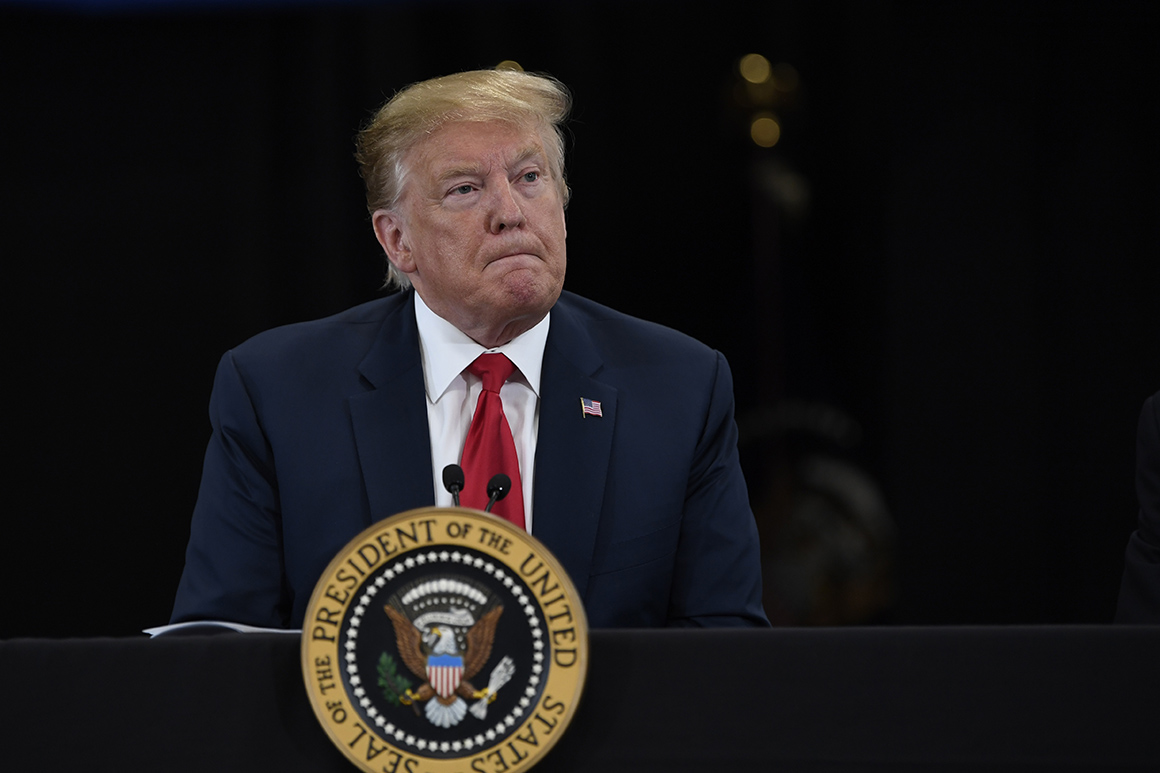
Nonetheless, any new restrictions are likely to strain ties with the affected countries, some of which assist the U.S. on issues like fighting terrorism, and some of which Washington has been trying to court for strategic reasons.
Trump confirmed Tuesday in an interview with The Wall Street Journal from Davos that he is trying to add additional nations to the travel ban, but declined to list the countries.
White House spokesman Hogan Gidley declined to confirm any details about plans to expand the travel ban, but defended the original order in a statement.
„The travel ban has been profoundly successful in protecting our country and raising the security baseline around the world,“ he said. „While there are no new announcements at this time, common sense and national security both dictate that if a country wants to fully participate in U.S. immigration programs, they should also comply with all security and counter-terrorism measures — because we do not want to import terrorism or any other national security threat into the United States.“
Trump signed the original travel ban on Jan. 27, 2017, just a week into his tenure. The order initially denied visas to citizens of seven majority-Muslim countries, though it was later modified as it went through a series of court challenges.
The Supreme Court eventually allowed a third iteration of the order to go into effect. It restricts entry of some citizens from Iran, Libya, Somalia, Syria and Yemen, along with Venezuela and North Korea. Chad was removed from the original list.
The countries under consideration for the expanded travel ban include some that have either had solid relationships with the U.S., or which the U.S. has courted.
Nigeria, for instance, is a U.S. counter-terrorism partner and there is a large Nigerian diaspora community in the United States. At the same time, Trump has in the past referred to African nations as „shithole“ countries whose citizens he did not want coming to the United States.
He also once said that if Nigerians come to the U.S., they will never “go back to their huts” in Africa, according to The New York Times.
Myanmar is another intriguing case: the United States has spent the last decade trying to improve ties with the country, which has embraced partial civilian rule after years of living under a military dictatorship. The U.S. still wants to coax Myanmar out of China’s orbit, despite the Myanmar military’s mass slaughter of Rohingya Muslims.
U.S. officials also have been keen to improve relations with Belarus, a country long seen as under the sway of Russia. Secretary of State Mike Pompeo had planned to visit the country just weeks ago, but had to cancel the trip to respond to rising tensions with Iran.
Sudan, meanwhile, has long had poor relations with the United States. But it recently underwent a revolution, and longtime leader Omar al-Bashir was ousted. Sudan’s new leadership has been trying to improve its standing in Washington. Being added to the travel ban could undermine the new government’s domestic standing.
Acting Homeland Security Secretary Chad Wolf acknowledged Friday that the U.S. has been creating criteria for foreign governments to address in helping vet foreign nationals seeking to enter the United States.
„For a small number of countries that lack either the will or the capability to adhere to these criteria, travel restrictions may become necessary to mitigate threats,“ he said in prepared remarks for a Homeland Security Experts Group event.
The Homeland Security Department and State Department did not respond to requests for comment.
Source: politico.com
See more here: news365.stream






